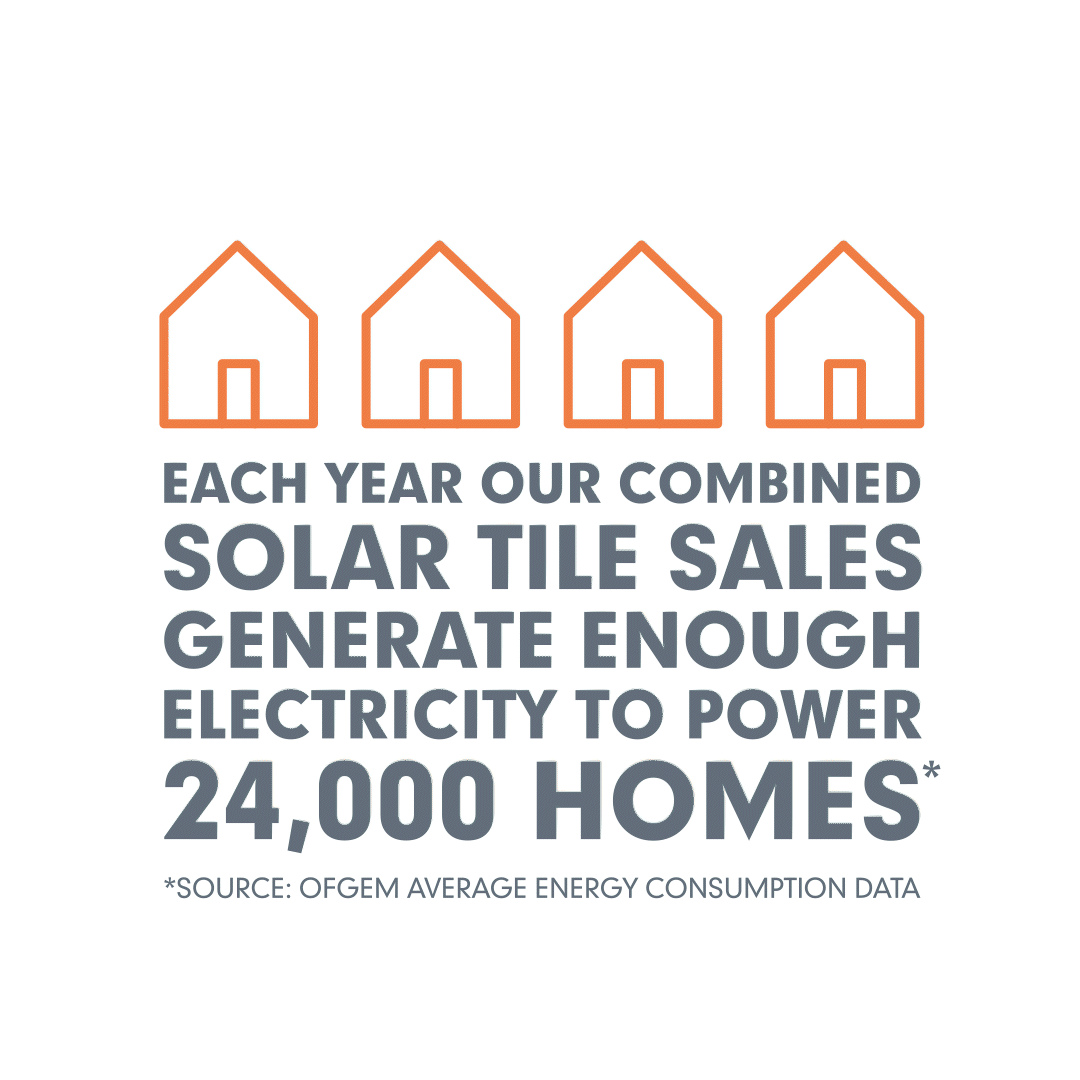Marley SolarTile®
Recognising the importance of renewable energy and the excellent potential for rooftops as a host for solar panels, we launched the Marley SolarTile® in 2020.
Marley SolarTile® was the UK's first fully integrated solar energy roof system, enabling our customers to benefit from designing and installing a fully warranted renewable solution into both their new-build and refurbishment projects.
With changes in legislation across the UK nations, designers will be more aware than ever that including renewable energy into their projects, will become even more necessary to support the UK's NetZero strategy.
Combined Marley solar panel installations since launch, generate over 70,817,750 kW-hours of renewable energy, which is enough electricity to power 24,000 homes each year*.
*Source: OFGEM average energy consumption data, based on 2020 Typical Domestic Consumption Values for medium electricity users.



